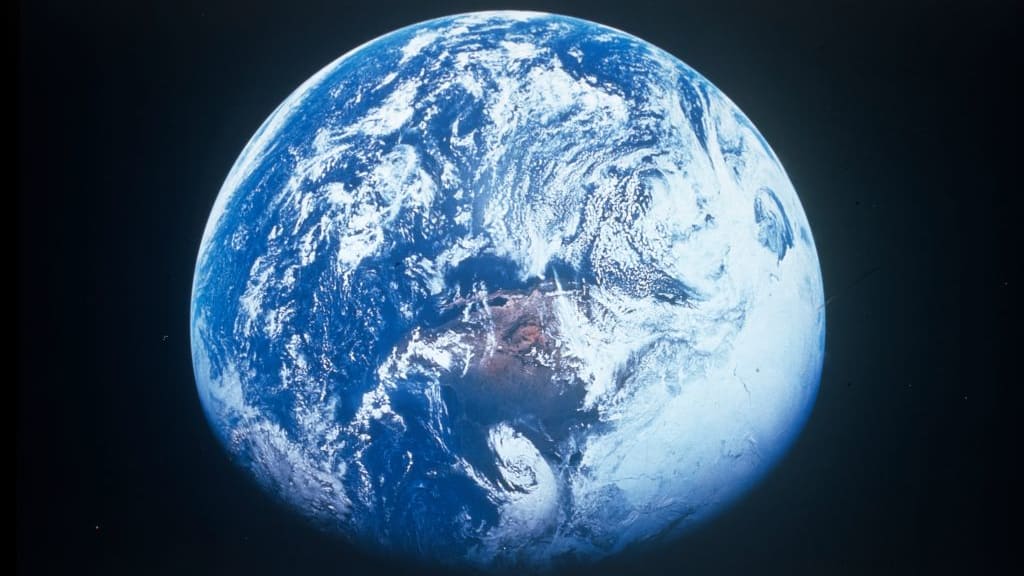2021 saw record-high greenhouse gas levels, new report says


A free daily email with the biggest news stories of the day – and the best features from TheWeek.com
You are now subscribed
Your newsletter sign-up was successful
The annual State of the Climate report published Wednesday shows that in 2021, greenhouse gas levels, global sea levels, and ocean heat reached record highs.
The international report was led by scientists from the National Oceanic and Atmospheric Administration's National Centers for Environmental Information. "The data presented in this report are clear — we continue to see more compelling scientific evidence that climate change has global impacts and shows no sign of slowing," NOAA Administrator Rick Spinrad said in a statement. "With many communities hit with 1,000-year floods, exceptional drought, and historic heat this year, it shows that the climate crisis is not a future threat but something we must address today as we work to build a climate-ready nation — and world — that is resilient to climate-driven extremes."
The Environmental Protection Agency says greenhouse gas emissions from human activities "are the most significant driver of observed climate change since the mid-20th century," and the report found that in 2021, the worldwide average atmospheric carbon dioxide concentration was 414.7 parts per million (ppm). This is 2.3 ppm greater than the 2020 amount, the State of the Climate report says, and the highest amount measured since instrumental records began in 1958.
The Week
Escape your echo chamber. Get the facts behind the news, plus analysis from multiple perspectives.

Sign up for The Week's Free Newsletters
From our morning news briefing to a weekly Good News Newsletter, get the best of The Week delivered directly to your inbox.
From our morning news briefing to a weekly Good News Newsletter, get the best of The Week delivered directly to your inbox.
The study also found the ocean heat content is "indicative of steadily increasing heat in Earth's system" and for the 10th year in a row, the global average sea level increased by roughly 4.9 mm. This is 97 mm higher than the average recorded in 1993, the first year satellite measurements were taken, ABC News reports.
More than 530 scientists from over 60 countries contributed to the report, which "provides the latest synthesis of scientific understanding of the climate system and the impact people are having on it," Paul Higgins, associate executive director of the American Meteorological Society, said in a statement. "If we take it seriously and use it wisely, it can help us thrive on a planet that is increasingly small in comparison to the impact of our activities."
A free daily email with the biggest news stories of the day – and the best features from TheWeek.com
Catherine Garcia has worked as a senior writer at The Week since 2014. Her writing and reporting have appeared in Entertainment Weekly, The New York Times, Wirecutter, NBC News and "The Book of Jezebel," among others. She's a graduate of the University of Redlands and the Columbia University Graduate School of Journalism.
-
 Political cartoons for February 21
Political cartoons for February 21Cartoons Saturday’s political cartoons include consequences, secrets, and more
-
 Crisis in Cuba: a ‘golden opportunity’ for Washington?
Crisis in Cuba: a ‘golden opportunity’ for Washington?Talking Point The Trump administration is applying the pressure, and with Latin America swinging to the right, Havana is becoming more ‘politically isolated’
-
 5 thoroughly redacted cartoons about Pam Bondi protecting predators
5 thoroughly redacted cartoons about Pam Bondi protecting predatorsCartoons Artists take on the real victim, types of protection, and more
-
 How climate change is affecting Christmas
How climate change is affecting ChristmasThe Explainer There may be a slim chance of future white Christmases
-
 Blue Origin launches Mars probes in NASA debut
Blue Origin launches Mars probes in NASA debutSpeed Read The New Glenn rocket is carrying small twin spacecraft toward Mars as part of NASA’s Escapade mission
-
 Why scientists are attempting nuclear fusion
Why scientists are attempting nuclear fusionThe Explainer Harnessing the reaction that powers the stars could offer a potentially unlimited source of carbon-free energy, and the race is hotting up
-
 Dinosaurs were thriving before asteroid, study finds
Dinosaurs were thriving before asteroid, study findsSpeed Read The dinosaurs would not have gone extinct if not for the asteroid
-
 Canyons under the Antarctic have deep impacts
Canyons under the Antarctic have deep impactsUnder the radar Submarine canyons could be affecting the climate more than previously thought
-
 SpaceX breaks Starship losing streak in 10th test
SpaceX breaks Starship losing streak in 10th testspeed read The Starship rocket's test flight was largely successful, deploying eight dummy satellites during its hour in space
-
 NASA is moving away from tracking climate change
NASA is moving away from tracking climate changeThe Explainer Climate missions could be going dark
-
 Rabbits with 'horns' sighted across Colorado
Rabbits with 'horns' sighted across Coloradospeed read These creatures are infected with the 'mostly harmless' Shope papilloma virus
